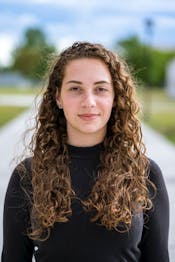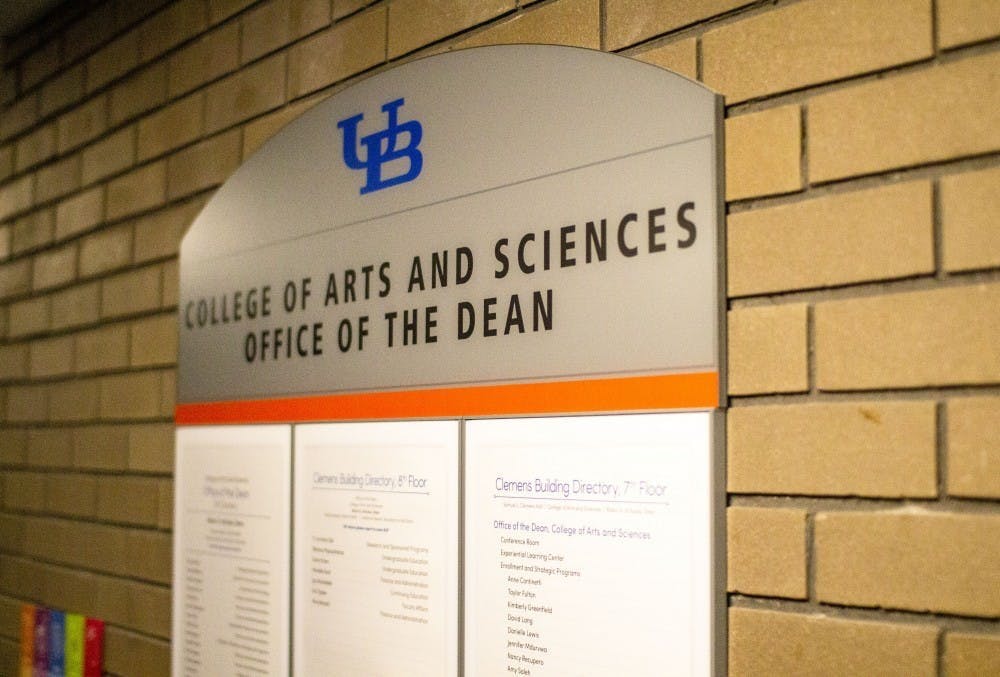Students and faculty are concerned for the future of UB’s Asian Studies Program following Walter Hakala’s Dec. 10 resignation as director.
Many said they feel College of Arts and Sciences Dean Robin Schulze is to blame.
On Dec. 10, Hakala, an associate professor in the English department, submitted his letter of resignation to Schulze, citing a lack of staff and the administration’s failure “to recognize the importance of the program” as main factors for stepping down. Now, students and faculty worry the program will dissipate as it has only one full-time faculty member.
Schulze wrote in an email that CAS is committed to the program and the opportunities it provides students. She said the college is evaluating how to enhance student interest in ASP, as well as its enrollment, structure and faculty engagement.
The program filled 312 of 316 class seats last semester (in the past, it offered only 100 seats). Still, fewer than 30 students major in Asian Studies at UB annually, according to Schulze.
In 2018, faculty from the University of Washington and the University of North Carolina Chapel Hill conducted an external review of the program and said they were “impressed” by the program and considered ASP “vibrant.” Hakala said many Fulbright scholars have taken Asian Studies courses and Mark Nathan, co-chair of the Asian Studies Advisory Council, said a large number of Fulbright scholars not only took ASP courses but were Hakala’s students.
But in November, Caroline Funk left her position as Hakala’s assistant to become associate director of UB’s Baldy Center for Law and Social Policy, and the role has remained unfilled since.
Hakala said he hopes the program can return to its previous state in order to survive.
“We could be so much more,” Hakala said. “There’s so much potential here. Our students know it, external reviewers know it, the faculty know it. What I just am so confused about is why doesn’t the dean understand it.”
Schulze said CAS will assess the program’s structure following Hakala’s resignation.
“We are always open to what can be improved upon to strengthen the experience of our students,” Schulze wrote. “With the change in the director position and staff, we will be evaluating the organizational structure that will best serve our students and are taking a look at how to enhance the quality of the courses and how to best support the program moving forward.”
Many students said they feel a disconnect between the program and Schulze’s office, which they say is causing ASP to “deteriorate.”
“I don’t think we should dilute the issue here. [Schulze] has consistently refused every proposal [Hakala] has presented to her and there is no reason for her to do something like that,” Netra Mittal, a sophomore economics major, said. “This is a very profitable program. Clearly students find value in it. … This is something that students everywhere want.”
ASP administrators said they feel a disconnect with CAS as well.
Before her resignation, Funk prepared a list of her responsibilities for her potential replacement, which Hakala says the Dean’s office “didn’t believe.”
“They couldn’t comprehend how much she was working on,” Hakala said.
CAS found a candidate for a part-time assistant role, but Hakala worries the duties exceed a part-time position.
But the program’s struggles started before Schulze’s appointment as dean.
Kristin Stapleton, history professor and former ASP director, said running the program was “really great” for roughly six years. She said the program began regressing when the 2008 financial crisis hit and in 2011 when the new CAS Dean, Bruce Pitman, started “whittling away support.”
Students and faculty now agree the program needs more faculty to survive. Stapleton helped create a plan to turn the program into a department which could have helped with this, she said, but the plan was never put into action.
She feels the plan would have changed the program’s trajectory.
“If there had been an Asian Studies Department, there would have been a group of people who were completely committed to it. … And then, even more important, is that departments can create hiring priorities for new faculty hires and we were never able to do that,” Stapleton said. “So trying to keep a program together when you have no influence on the makeup of the faculty at UB, is difficult.”
With only one full-time faculty member left, Amanda Kennell, ASP struggles to find professors to teach courses. Hakala said CAS rejected two new Asian Studies courses because ASP has no permanent faculty to teach them.
Schulze said because ASP is a program rather than a department, it “must draw on the breadth of disciplines and the range of faculty with expertise in this area to deliver instruction.”
“The Asian Studies Program is a multidisciplinary program built on the diverse research strengths of the more than 40 affiliated faculty members in the College and from academic units across the university,” Schulze wrote. “We plan to engage the faculty from the College of Arts and Sciences and across UB to continue offering a truly interdisciplinary Asian Studies Program.”
Students in various disciplines are worried about the program’s future, but Asian Studies majors are hit hardest by the program’s deficits. Some feel the program doesn’t offer enough diverse Asian Studies courses and some are left to take courses at other colleges and even in other countries to fulfill requirements for their major.
“A lot of students that do come here and try and finish up their courses they ask, ‘What more can we do? What more can we take? Where’s the next step?’ And a lot of times the answer is there is no next step,” Jonathan Bessette, a senior mechanical engineering major, said. “You can’t do that here. You have to go somewhere else.”
But students say the program is important, and many take Asian Studies courses to feel more connected with their culture.
Mittal is an international student and has taken Asian Studies courses each semester. She said the courses help connect her with others who understand her “cultural roots.”
“When you’re an international student, you kind of grapple with a sense of identity when you come to the U.S.,” Mittal said. “It’s really different and you kind of hold your cultural roots in some way. And so in that way, [Asian Studies has] been helpful because I’ve known people who sort of understand where I come from.”
Lulin Cao, a junior Asian Studies major, is an international student from China. She said ASP has helped her connect her interests with her experiences.
“I’m primarily interested in sociology and anthropology. But every course’s main focus in those fields in the U.S. are America and Western countries. But I wanted to do something more related to my own country and to Asia.”
Schulze said CAS’ evaluation will seek ways to increase student enrollment in Asian Studies courses and said “over the last four years, fewer than 30 students majored in Asian Studies annually.”
“We look forward to sharing more with our students about the support for the Asian Studies Program in the coming months,” Schulze wrote.
But without Hakala, students and faculty fear for the program’s future.
Nathan worries not only for ASP, but that Hakala’s passion for Asian Studies will lead him away from UB entirely.
“I’ve actually never seen another faculty [member] who devotes as much to mentoring undergraduate students as [Hakala] does,” Nathan said. “He’s serious when he says that he loves this. … My big fear is that we will lose [him] to some rival institution. He is a very respected, highly regarded scholar in his field, and really sought after and people are going to come looking for him if he [were to] decide, based on this, that his pastures would be greener elsewhere where people cared about what it is that he does and what he’s passionate about.”
Hakala said “this place runs on passion, not on money.” And in his resignation letter, he wrote “It has been an honor to lead this program. I will miss it terribly.”
“I was told by my colleagues [to] get rid of a line that I had in there about how this is the best job I’ve ever had because it makes me look too emotional about this,” Hakala said. “But I am. I’m in mourning for maybe losing my association with this thing that I love more than anything on campus and that I believe in more than anything on campus.”
Students saw this passion, they say it drew them to the program; Mittal worries students may lose interest without it.
“[Hakala] was kind of what drew us to this [program] to begin with,” Mittal said. “Like all of us here are here because of him. And now that he’s gone, I don’t really know who’s going to be that sort of force that gets people into it.”
Jacklyn Walters is the managing editor and can be reached at Jacklyn.Walters@ubspectrum.com and @JacklynAWalters

Jacklyn Walters is a senior communication major and The Spectrum's managing editor. She enjoys bringing up politics at the dinner table and seeing dogs on campus.





